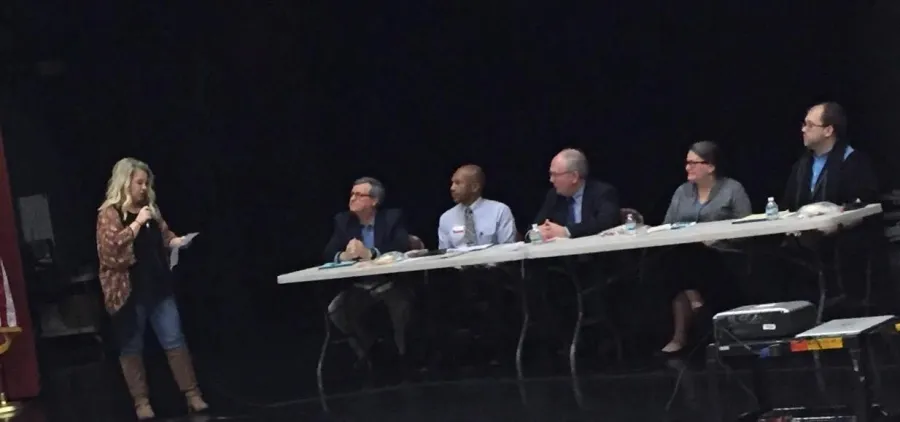Iowans for Public Education - Expert Panel on Vouchers/ESAs

This is a reprinted article from the Des Moines Register. Iowa View presented by Karen Nichols, founder of Iowans for Public Education.
"As our Republican governor and lawmakers plan sweeping legislation to divert as much as $240 million in taxpayer dollars to private education, we should ask how these changes might affect Iowa’s children.
We can look to Florida for clues.
Florida’s school voucher system, totaling $1 billion per year, is the nation’s largest school “choice” program and is touted by Secretary of Education Betsy DeVos and President Donald Trump as a model for the nation. However, a recent, in-depth report by the Orlando Sentinel (“Schools Without Rules”) reveals a variety of abuses that Iowans should note.
School voucher programs open the state’s doors — and taxpayers’ pocketbooks — to unregulated, for-profit schools and online “cyber schools” that operate with greed as a primary motive. The Sentinel found that nonpublic schools receiving state funding in Florida were subject to little oversight, with some hiring teachers and principals without college degrees (and some with criminal records), holding classes in dilapidated buildings, and falsifying fire safety and health records. Other unethical practices included fraud (e.g., stealing money from children’s Medicaid accounts, and pocketing voucher money instead of spending it on students), low academic standards, corporal punishment, and substandard care for special education students.
As in other “choice” states, Florida does not require private voucher schools to measure student progress, report graduation rates, meet academic standards, provide recess, hire qualified teachers, make budgets public, or meet school building codes. Many of these schools don’t offer art or music rooms, sports facilities, playgrounds, learning technology, or free meals for poor students. Books are often outdated or substandard. One curriculum popular in religious schools requires students to sit alone in cubicles and complete worksheets for most of the day — up to 70 workbooks per year — “with little instruction from teachers or interaction with classmates.”
As is common in other states, many of Florida’s voucher schools were mismanaged and closed midyear, sending students packing back to the public schools — without the public dollars to educate them. Says one parent: “Where did the money go? It didn’t go to our student.”
The philosophy behind school privatization is that the free market will weed out such poor schools. Yet many voucher schools lack transparency about test scores, graduation rates, and other factors needed to assess quality, and schools don’t always provide the amenities advertised.
Gov. Reynolds and other GOP leaders say that parents are the best judges of the schools their children attend. Yet how many parents know that voucher schools tend to have little or no government oversight? As a parent, I expect some of my tax dollars to go toward protecting my children from unqualified doctors, unsafe drinking water, and toxins in their food. Should we not expect the same level of oversight for our schools, where our children spend most of their day away from parental protection?
Public dollars should come with public accountability. Will our GOP leadership hold nonpublic schools receiving government funding to the same standards as our public schools? Or will they give no oversight, as is the case with Iowa’s estimated 17,000 homeschooled children? How much would adequate oversight cost if Iowa, like Florida, sees a 20% jump over the next decade in the number of schools needing supervision?
Iowa already diverts more than $52 million in taxpayer funds to private education. Should we commit even more to school privatization schemes — voucher programs such as “education savings accounts” (ESAs) and “school tuition organizations” (STOs) — that have proven problematic wherever they’ve been broadly applied? Given the high quality of public education in Iowa, which already offers choice within the public system, these questions need to be answered before the legislative session opens on Jan. 8."